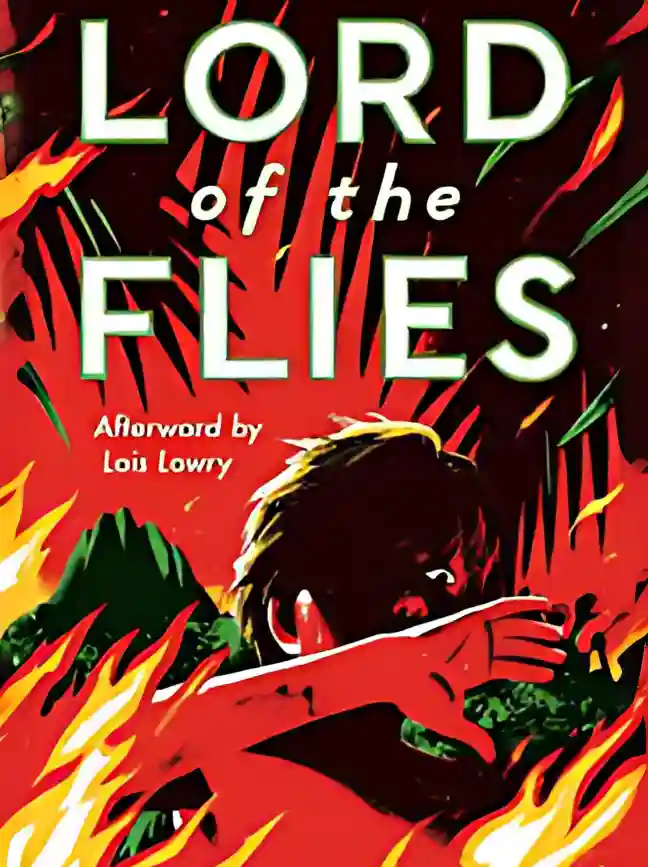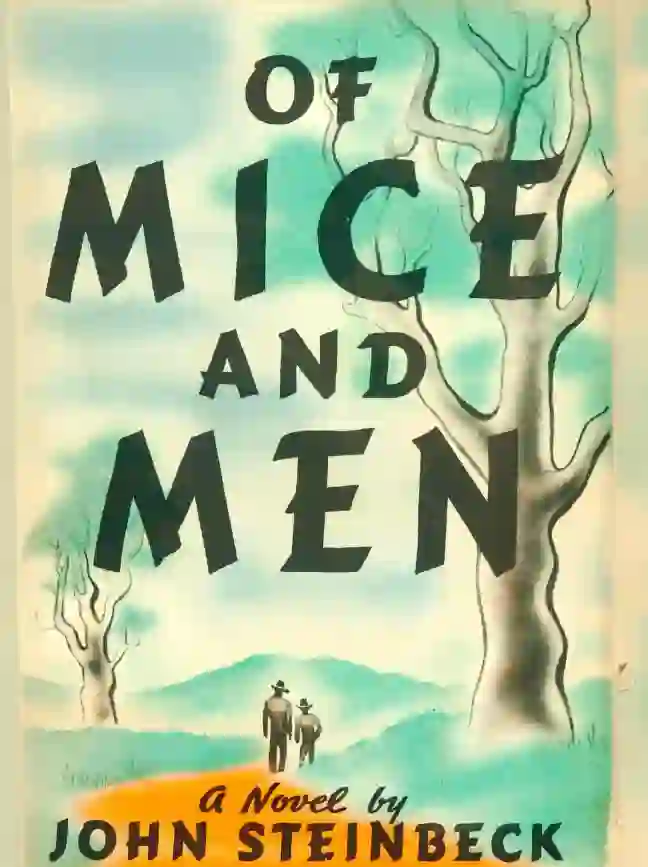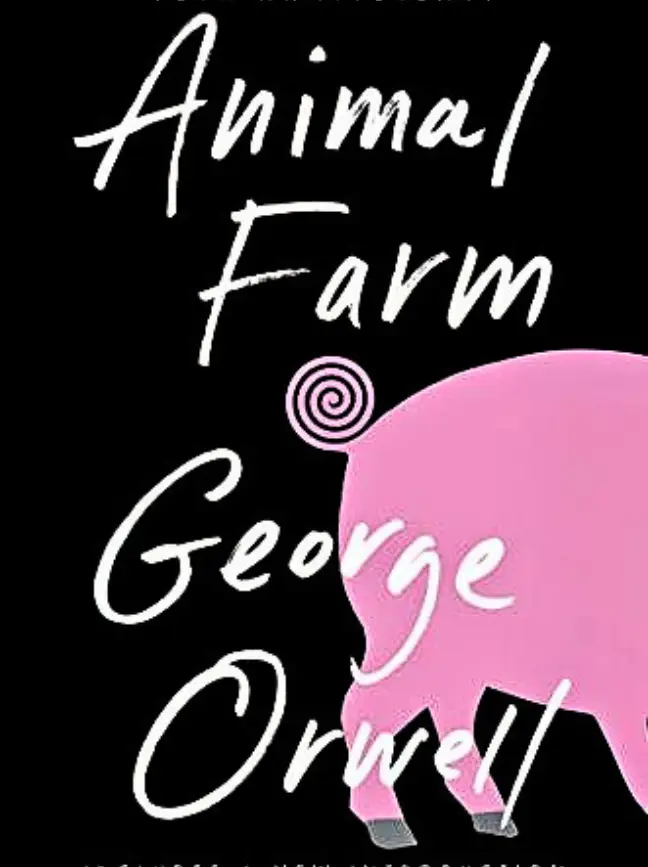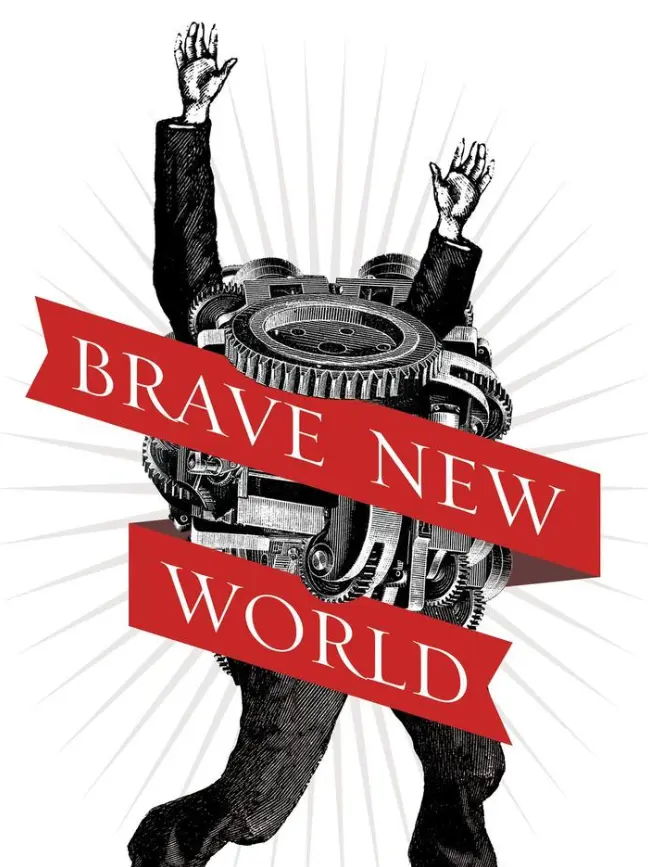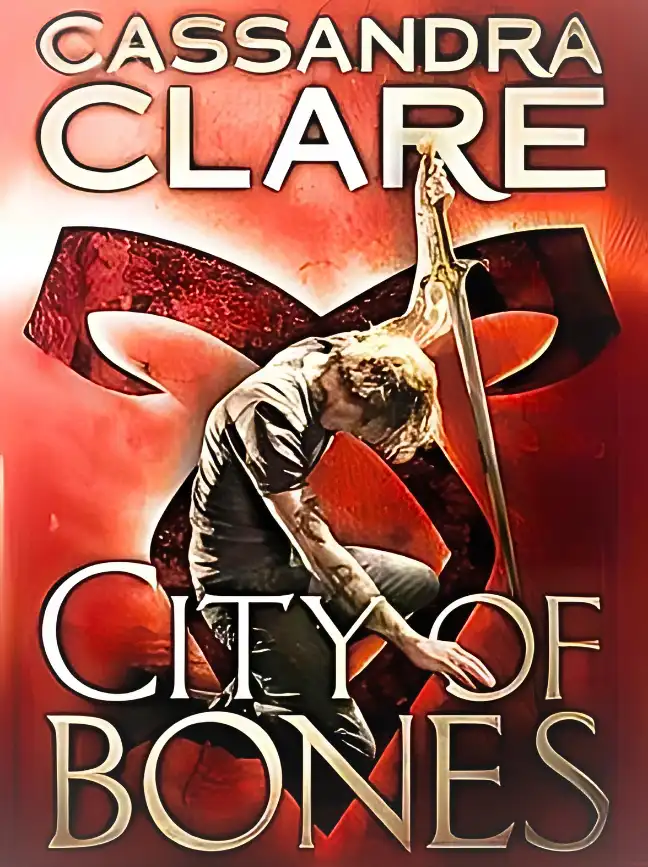Kell stepped through the door in the world and shivered. Red London had vanished, taking the warmth with it; his boots hit cold stone, and his breath blossomed in the air before his lips, and he pulled his coat—the black one with the silver buttons—tightly around his shoulders.
Priste ir Essen. Essen ir Priste.
“Power in Balance. Balance in Power.” Equal parts motto, mantra, and prayer, the words ran beneath the royal emblem in Red London, and could be found in shops and homes alike. People in Kell’s world believed that magic was neither an infinite resource nor a base one. It was meant to be used but not abused, wielded with reverence as well as caution.
White London had a very different notion.
Here, magic was not seen as equal. It was seen as something to be conquered. Enslaved. Controlled. Black London had let magic in, let it take over, let it consume. In the wake of the city’s fall, White London had taken the opposite approach, seeking to bind power in any way they could. Power in Balance became Power in Dominance.
And when the people fought to control the magic, the magic resisted them. Shrank away into itself, burrowed down into the earth and out of reach. The people clawed the surface of the world, digging up what little magic they could still grasp, but it was thin and only growing thinner, as were those fighting for it. The magic seemed determined to starve its captors out. And slowly, surely, it was succeeding.
This struggle had a side effect, and that effect was the reason Kell had named White London white: every inch of the city, day or night, summer or winter, bore the same pall, as though a fine coat of snow—or ash—had settled over everything. And everyone. The magic here was bitter and mean, and it bled the world’s life and warmth and color, leaching it out of everything and leaving only the pale and bloated corpse behind.
Kell looped the White London coin—a weighty iron thing—around his neck, and tucked it back beneath his collar. The crisp blackness of his coat made him stand out against the faded backdrop of the city streets, and he
shoved his bloodstreaked hand into his pocket before the rich red sight of it gave anyone ideas. The pearl-toned surface of the half-frozen river—here called neither the Thames, nor the Isle, but the Sijlt—stretched at his back, and across it, the north side of the city reached to the horizon. In front of him, the south side waited, and several blocks ahead, the castle lunged into the air with knifelike spires, its stone mass dwarfing the buildings on every side.
He didn’t waste time, but made his way directly toward it.
Being lanky, Kell had a habit of slouching, but walking through the streets of White London, he pulled himself to his full height and kept his chin up and his shoulders back as his boots echoed on the cobblestones. His posture wasn’t the only thing that changed. At home, Kell masked his power. Here he knew better. He let his magic fill the air, and the starving air ate it up, warming against his skin, wicking off in tendrils of fog. It was a fine line to walk. He had to show his strength while still holding fast to it. Too little, and he’d be seen as prey. Too much, and he’d be seen as a prize.
In theory, the people of the city knew Kell, or of him, and knew that he was under the protection of the white crown. And in theory, no one would be foolish enough to defy the Dane twins. But hunger—for energy, for life—did things to people. Made them do things.
And so Kell kept his guard up and watched the sinking sun as he walked, knowing that White London was at its most docile in the light of day. The city changed at night. The quiet—an unnatural, heavy, held-breath kind of silence
—broke and gave way to noise, sounds of laughter, of passion—some thought it a way to summon power—but mostly those of fighting, and killing. A city of extremes. Thrilling, maybe, but deadly. The streets would have been stained dark with blood long ago if the cutthroats didn’t drink it all.
With the sun still up, the lowly and the lost lingered in doorways, and hung out of windows, and loitered in the gaps between buildings. And all of them watched Kell as he passed, gaunt stares and bony edges. Their clothes had the same faded quality as the rest of the city. So did their hair, their eyes, and their skin, the surface of which was covered in markings. Brands and scars, mutilations meant to bind what magic they could summon to their bodies. The weaker they were, the more scars they made on themselves, ruining their flesh in a frantic attempt to hold on to what little power they had.
In Red London, such markings would be seen as base, tainting not only body but also magic by binding it to them. Here, only the strong could afford to scorn the marks, and even then, they did not see them as defiling—merely desperate. But even those above such brands relied on amulets and charms (Holland alone went without any jewelry, save the broach that marked him as a servant of the throne). Magic did not come willingly here. The language of
elements had been abandoned when they ceased to listen (the only element that could be summoned was a perverted kind of energy, a bastard of fire and something darker, corrupted). What magic could be had was taken, forced into shape by amulets and spells and bindings. It was never enough, never filling.
But the people did not leave.
The power of the Sijlt—even in its half-frozen state—tethered them to the city, its magic the only remaining flicker of warmth.
And so they stayed, and life went on. Those who had not (yet) fallen victim to the gnawing hunger for magic went about their daily work, and minded their own, and did their best to forget about the slow way their world was dying. Many clung to the belief that the magic would return. That a strong enough ruler would be able to force the power back into the veins of the world and revive it.
And so they waited.
Kell wondered if the people of White London truly believed that Astrid and Athos Dane were strong enough, or if they were simply waiting for the next magician to rise up and overthrow them. Which someone would, eventually. Someone always did.
The quiet got heavier as the castle came into sight. Grey and Red London both had palaces for their rulers.
White London had a fortress.
A high wall surrounded the castle, and between the vaulting citadel and its outer wall stood an expansive stone courtyard, running like a moat around the looming structure and brimming with marble forms. The infamous Krös Mejkt, the “Stone Forest,” was made up not of trees but of statues, all of them people. It was rumored the figures hadn’t always been stone, that the forest was actually a graveyard, kept by the Danes to commemorate those they killed, and remind any who passed through the outer wall of what happened to traitors in the twins’ London.
Passing under the entryway and through the courtyard, Kell approached the massive stone steps. Ten guards flanked the stairs of the fortress, still as the statues in the forest. They were nothing but puppets, stripped by King Athos of everything but the breath in their lungs and the blood in their veins and his order in their ears. The sight of them made Kell shiver. In Red London, using magic to control, possess, or bind the body and mind of another person was forbidden. Here, it was yet another sign of Athos and Astrid’s strength, their might—and therefore right—to rule.
The guards stood motionless; only their empty eyes followed him as he approached and passed through the heavy doors. Beyond, more guards lined
the walls of an arching antechamber, still as stone save for their shifting gazes. Kell crossed the room and into a second corridor, this one empty. It wasn’t until the doors closed behind him that Kell let himself exhale and lower his guard a fraction.
“I wouldn’t do that just yet,” said a voice from the shadows. A moment later a shape stepped out of them. Torches lined the walls, burning but never burning out, and in their flickering light Kell saw the man.
Holland.
The Antari’s skin was nearly colorless, and charcoal hair swept across his forehead, ending just above his eyes. One of them was a greyish green, but the other was glossy and black. And when that eye met Kell’s, it felt like two stones sparking against each other.
“I’ve come with a letter,” said Kell.
“Have you?” Holland said drily. “I thought you’d come for tea.” “Well, I’ll take that, too, I suppose, while I’m here.”
Holland’s mouth quirked in something that wasn’t a smile.
“Athos or Astrid?” he asked, as if it were a riddle. But riddles had right answers, and when it came to the Dane twins, there was none. Kell could never decide which one he would rather face. He didn’t trust the siblings, not together, and certainly not apart.
“Astrid,” he said, wondering if he’d chosen well.
Holland gave no indication, only nodded, and led the way.
The castle was built like a church (and maybe it had been one, once), its skeleton vast and hollow. Wind whistled through the halls, and their steps echoed over the stone. Well, Kell’s steps did. Holland moved with the terrifying grace of a predator. A white half-cloak draped over one of his shoulders, billowing behind him as he walked. It was held together by a clasp, a silver circular broach, etched with markings that at a distance looked like nothing more than decoration.
But Kell knew the story of Holland and the silver clasp.
He hadn’t heard it from the Antari’s lips, of course, but had bought the truth off a man at the Scorched Bone, traded the full story for a Red London lin several years before. He couldn’t understand why Holland—arguably the most powerful person in the city, and perhaps the world—would serve a pair of glorified cutthroats like Astrid and Athos. Kell had himself been to the city a handful of times before the last king fell, and he had seen Holland at the ruler’s side, but as an ally, not a servant. He had been different then, younger and more arrogant, yes, but there was also something else, something more, a light in his eyes. A fire. And then, between one visit and the next, the fire was gone, and so was the king, replaced by the Danes. Holland was still there, at
their side as if nothing had changed. But he had changed, gone cold and dark, and Kell wanted to know what had happened—what had really happened.
So he went looking for an answer. And he found it, as he found most things
—and most found him—in the tavern that never moved.
Here it was called the Scorched Bone.
The storyteller clutched the coin as if for warmth as he hunched on his stool and spun the tale in Maktahn, the guttural native tongue of the harsh city.
“Ön vejr tök …” he began under his breath. The story goes …
“Our throne is not something you’re born to. It’s not held by blood. But taken by it. Someone cuts their way to the throne and holds it as long as they can—a year, maybe two—until they fall, and someone else rises. Kings come and go. It is a constant cycle. And usually, it is a simple enough matter. The murderer takes the place of the murdered.
“Seven years ago,” the man continued, “when the last king was killed, several tried to claim his crown, but in the end, it came down to three. Astrid, Athos, and Holland.”
Kell’s eyes widened. While he knew Holland had served the prior crown, he had not known of his aspirations to be king. Though it made sense; Holland was Antari in a world where power meant everything. He should have been the obvious victor. Still, the Dane twins proved nearly as powerful as they were ruthless and cunning. And together, they defeated him. But they didn’t kill him. Instead, they bound him.
At first Kell thought he’d misunderstood—his Maktahn wasn’t as flawless as his Arnesian—and he made the man repeat the word. Vöxt. “Bound.”
“It’s that clasp,” said the man in the Scorched Bone, tapping his chest. “The silver circle.”
It was a binding spell, he explained. And a dark one at that. Made by Athos himself. The king had an unnatural gift for controlling others—but the seal didn’t make Holland a mindless slave, like the guards that lined the castle halls. It didn’t make him think or feel or want. It only made him do.
“The pale king is clever,” added the man, fiddling with his coin. “Terrible, but clever.”
Holland stopped abruptly, and Kell forced his mind and his gaze back to the castle hall and the door that now waited in front of them. He watched as the White Antari brought his hand to the door, where a circle of symbols was burned into the wood. He drew his fingers deftly across them, touching four in sequence; a lock yielded within, and he led Kell through.
The throne room was just as sprawling and hollow as the rest of the castle, but it was circular and made of brilliant white stone, from the rounded walls
and the arching ribs of the ceiling to the glittering floors and the twin thrones on the raised platform in its center. Kell shivered, despite the fact the room wasn’t cold. It only looked like ice.
He felt Holland slip away, but did not turn his attention from the throne, or the woman sitting on it.
Astrid Dane would have blended right in, if it weren’t for her veins.
They stood out like dark threads on her hands and at her temples; the rest of her was a study in white. So many tried to hide the fact they were fading, covering their skin or painting it up to look healthier. The queen of White London did not. Her long colorless hair was woven back into a braid, and her porcelain skin bled straight into the edges of her tunic. Her entire outfit was fitted to her like armor; the collar of her shirt was high and rigid, guarding her throat, and the tunic itself ran from chin to wrist to waist, less out of a sense of modesty, Kell was sure, than protection. Below a gleaming silver belt, she wore fitted pants that tapered into tall boots (rumor had it that a man once spat at her for refusing to wear a dress; she’d cut off his lips). The only bits of color were the pale blue of her eyes and the greens and reds of the talismans that hung from her neck and wrists and were threaded through her hair.
Astrid had draped herself over one of the two thrones, her long thin body like taut wire under her clothes. Sinewy, but far from weak. She fiddled with a pendant at her neck, its surface like frosted glass, its edges as red as freshly drawn blood. Strange, thought Kell, to see something so bright in White London.
“I smell something sweet,” she said. She’d been gazing up at the ceiling.
Now her eyes wandered down and landed on Kell. “Hello, flower boy.”
The queen spoke in English. Kell knew that she hadn’t studied the language, that she—like Athos—relied on spellwork instead. Somewhere under her close-fitting clothes, a translation rune was scarred into her skin. Unlike the desperate tattoos made by the power hungry, the language rune was a soldier’s response to a politician’s problem. Red London treated English as a mark of high society, but White London found little use for it. Holland had told Kell once that this was a land of warriors, not diplomats. They valued battle more than ballrooms and saw no value in a tongue that their own people did not understand. Rather than waste years learning the common tongue between kings, those who took the throne simply took the rune as well.
“Your Majesty,” said Kell.
The queen drew herself up into a sitting position. The laziness of her motions was a farce. Astrid Dane was a serpent, slow only until she chose to strike. “Come closer,” she said. “Let me see how you’ve grown.”
“I’ve been grown for some time,” said Kell.
She drew a nail down the arm of the throne. “Yet you do not fade.” “Not yet,” he said, managing a guarded smile.
“Come to me,” she said again, holding out her hand. “Or I will come to you.”
Kell was not sure if it was a promise or a threat, but he had no choice regardless, and so he stepped forward into the serpent’s nest.


